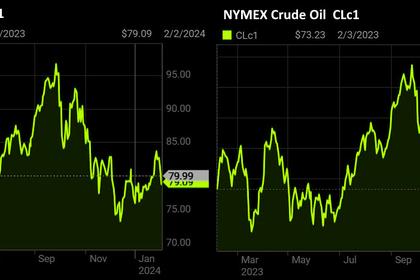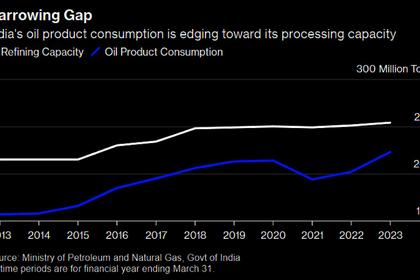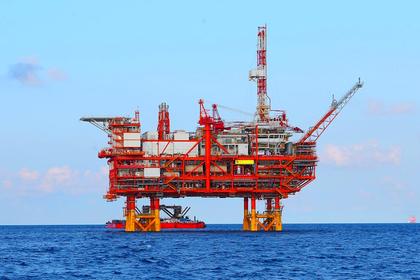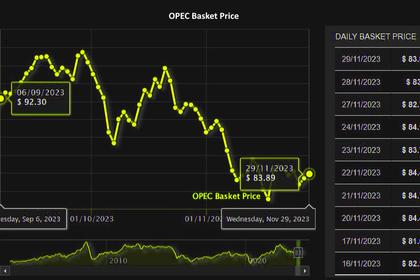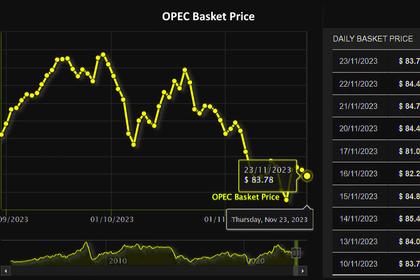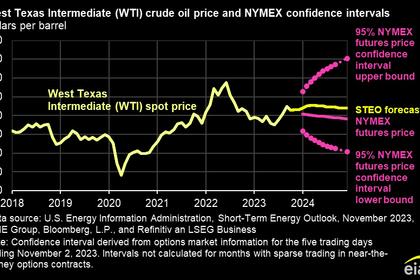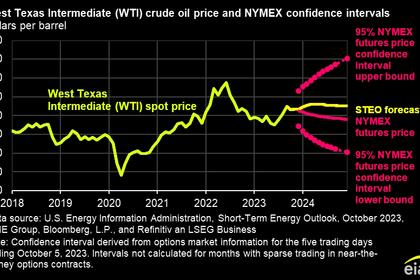
NO PEAK OIL DEMAND YET
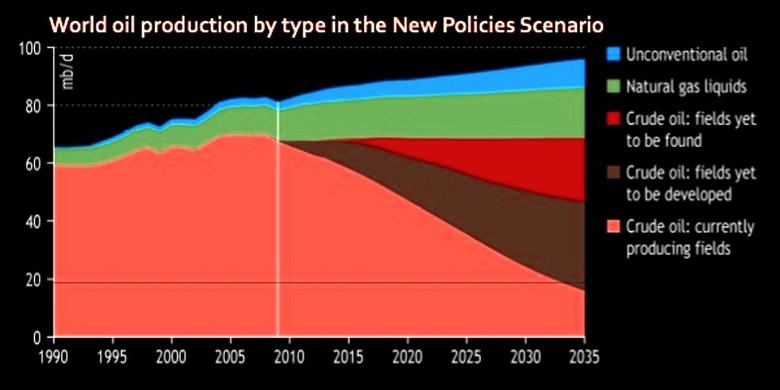
OPEC- Wednesday, 17 January 2024 - A history of ‘unrealized’ peaks
Article by HE Haitham Al Ghais, OPEC Secretary General.
The idea of oil supply peaking, or so-called peak oil, surfaced as early as the 1880s, with some predicting a looming exhaustion in the US due to the demise of the Pennsylvania oil fields. US and global oil production, however, was still increasing over 70 years later, when the ‘peak oil theory’ of geologist Marion King Hubbert gained traction in 1956.
Hubbert predicted a global peak in crude oil production around 2000 at a level of about 34 million barrels a day (mb/d). In reality, this level was reached in 1967 and global crude oil production was over 65 mb/d by the turn of the century.
Debates on peak oil supply resurfaced again in the 1990s and 2000s, with geologist Colin Campbell stating in the late 1990s that global oil production would peak around 2004 or 2005, after which the world would have to rely on ever-dwindling, more expensive oil, with huge consequences for the global economy. In 2006, oil financier Matthew Simmons said that global oil production may have peaked in 2005.
Throughout history, repeated predictions of peak oil supply have repeatedly been moved further into the future, and at ever-higher levels.
The past peak supply predictions were way off the mark, misled by mistaken assumptions on the size of the recoverable resource base, an underestimation of the impact of technology advancement, and the general resourcefulness of the industry.
In 2024, oil supply continues to expand, driven by improved economics and continuous advancements in technology that have helped lower costs, open up new frontiers and add new reserves. Moreover, there are no concerns about the available resource base, which is large enough for this century and beyond.
Today, there is little talk of peak supply, with the focus shifting to peak oil demand as some forecasters are pushing theoretical policies that have decided that oil should not be part of a sustainable energy future. As with the peak oil supply debate, is this not forgetting the role technologies can play in helping reduce emissions and the global importance of oil as a secure and available resource?
A Citibank report from 2013, entitled ‘Global Oil Demand Growth – The End Is Nigh’, suggested that oil demand growth might top out much sooner than the market expected. However, oil demand in 2012 was below 90 mb/d, while demand today is above 100 mb/d.
Today’s demand level has also moved well past pre-COVID-19 levels, with some forecasters suggesting at the start of the pandemic that oil demand levels would never again surpass those seen in 2019.
In 2023, the International Energy Agency (IEA) asserted that it saw a global oil demand peak before the end of this decade and called for a halt to new oil investments. This was despite the IEA only a few years earlier highlighting that the world would still need oil for years to come and stressing the importance of investing in the sector.
Today, what is clear is that peak oil demand is not showing up in any reliable and robust short- and medium-term forecasts.
For instance, take 2023 and 2024. At OPEC, we see oil demand growth of 4.7 mb/d over the two years, with ESAI at over 4 mb/d too, and Rystad and Argus close to this level. Even the IEA sees growth of 3.4 mb/d over the 2023-24 period.
Given these growth trends, it is a challenge to see peak oil demand by the end of the decade, a mere six years away.
There are many reasons behind this. For example, a pushback from populations comprehending the implications of ambitious and unrealistic net zero policy agendas, policymakers reevaluating their approach to energy transition pathways, and faster industrialization in developing countries, where we are seeing the emergence of a larger middle class, an expansion in transport services, and greater energy demand and access.
We see these trends evolving further over the longer term, as do some other forecasters. In OPEC’s World Oil Outlook 2023, we see demand reaching 116 mb/d by 2045.
After all, crude oil and its derivatives are a constant presence in our daily lives, bringing vital everyday products, and helping to deliver on energy security and energy access in a widely available and affordable way.
Moreover, technological improvements are allowing us to not only find new resources, but enabling us to take huge strides in reducing emissions, as exemplified by the availability of cleaner fuels, much improved efficiencies and technologies such as carbon capture, utilization and storage, carbon dioxide removal and direct air capture.
Ultimately, peak oil supply has never come to pass, and predictions of peak oil demand are following a similar trend. Time and again, oil has defied expectations regarding peaks. Logic and history suggest that it will continue to do so.
It all underscores the need for stakeholders to recognize the need for continued investment into the oil industry, today, tomorrow, and many decades into the future.
-----
Earlier:
